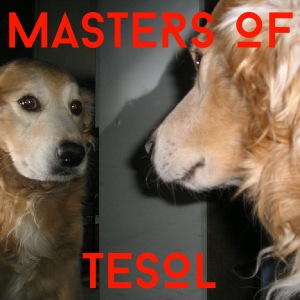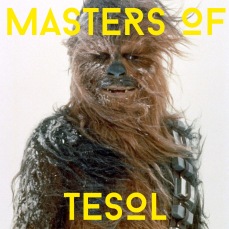English Instructor
21.5 – Thinking Skills – VIDEO!
I am branching out into video.
Please watch, subscribe, like and all those things that everyone on YouTube is begging you to do! This is the first step of an expansion of MOT with the aim of eventually making materials for you to use in your own classes.
Please smash “subscribe”, pummel “like” and all that other YouTube stuff.
First Video – https://youtu.be/FWE2JPBf-PI
Channel – http://www.youtube.com/channel/UCKbariMdEytYHdmkpXiILnQ/
Keywords: Bloom, Thinking Skills, Bloom’s Taxonomy, ESL, EFL, TESOL, TEFL, CELTA, DELTA, linguistics, language, second language, teaching, learning, English, bilingual, multilingual, cognition,
19 – Reflective Practice – Thomas Farrell
The self-styled ‘bad boy’ of language teaching, Thomas Farrell, dropped by my office to take about self reflection. What do we do in the classroom and, importantly, WHY do we do it? Who are YOU as a teacher and what do YOU bring into the classroom?
Start adding this reflective practice regularly to your professional life and you’ll be surprised at the difference it can make to your personal and professional development.
Also a good lesson about having a safety net. I recorded this with my fancy MICs but the recordings failed for some reason, so this is based on my phone back-up recording. Phew….
16 – Eytan Zweig – what words really mean – semantics and pragmatics
Plurals are easy, right? There’s one or there’s more than one… pretty straight forward. “All”, “every”, “All the” “each” – that’s pretty simple too, isn’t it? Well, hold on to something sturdy as Eytan Zweig gets you to think a little deeper about how we both form and understand language.
The literal meaning (semantics) and the meaning of the use (pragmatics) of the language is a vital part of how we communicate in real life. So, let’s a show like this is chomping at the bit to dig down into this topic.
Keywords: ESL, EFL, TESOL, TEFL, CELTA, DELTA, pragmatics, semantics, linguistics, language, second language, teaching, learning, English, Israeli, Hebrew, bilingual, mulitlingual, York, University of York, UK, England, cognition, Eytan Zweig,
14 – MOT Listeners’ Tales from the classroom
In this end-of-year episode, we get the funnier side of teaching English with stories from listeners and future interviewees. Special thanks to Grace, Thomas, Matthew, Jon, Fergal, James, Mierkamil, Oksana, Jacob, Roger, Gordon, and Jake.
We cover accidental phallic drawings, mistranslations, unintended puns, uncontrollable sweating…
If you have a good story, you can be part of a future episode. Record it and send it to mastersoftesol@gmail.com .
IG: mastersoftesol
Twitter: @MOTcast
Cool people subscribe on:
Google Play
https://play.google.com/music/m/Ithao3qppoidll3hfgekmbusswi?t=Masters_of_TESOL
iTunes
https://itunes.apple.com/gb/podcast/masters-of-tesol/id933226826?mt=2
EFL, ESL, English Teaching, TESOL, TEFL, CELTA, EIL,
13 – What the way you speak says about you – Sociolinguistics with Andrew Euan MacFarlane

This episode, we start with a little experiment and get more interactive. Let us know what country you thought the music originated in at @MOTcast with the hashtag #motesol . I’ll put up the results on www.mastersoftesol.com
Andrew Ewan MacFarlane is a lecturer at University of York in the Department of Language and Linguistic Science and a sociolinguist. We spent a while flipping back and forth between accents and dialects, reminiscing about Margaret Thatcher, thinking about unobtrusive kiwis and kangaroos, gettin’ daaaan wit da yoof o’ London innit, and playing “Name That [Country of Origin] Tune”.
This was one of my favourite interviews so far and hopefully inspires more than a few listeners to get deeper into the subject.
Footnotes:
Margaret Thatcher’s voice – before and after
MOT on Instagram
12 – Babies and First Language Acquisition – Tamar Keren-Portnoy pt1
Now on Instagram!
Once again, I got lost in the labyrinthian corridors of the University of York Language & Linguistic Science department, this time to speak to Tamar Keren-Portnoy about first language acquisition. There’s a lot of similarities between how we learn our first language and how we acquire our second language, so it’s a useful topic for ESL / EFL / second language teachers.
She gives us insights into such things as how babies develop syntax/grammar norms, why they learn some words earlier than others, how babies are not simply mimicking their caretakers and, through her own research with Rory DePaolis & Marilyn Vihman, how babies learn through listening and the sounds they themselves make.
You may remember Marilyn Vihman from episode 9 of MOT.
Later in the year, I’ll release a mini-episode about the developmental stages of babies.
Links:
Marilyn Vihman Interview on MOT
“Travel Broadens the Mind” – Campos et al (2000)
Key words: baby, babies, acquisition, teaching, learning, babbling, language, babbling, cooing,
11 – Too old to learn? The Critical Period – Heather Marsden

This episode, I speak to University of York’s Heather Marsden about the controversial Critical Period hypothesis. This theory suggests that there is a limited age at which we can learn a second language, after which it grows increasingly difficult. Anecdotally, we assume this to be true – kids are sponges for language while older people struggle – but what does the research say about this?
This episode is simply a bite-sized introduction to a much larger topic, so I encourage you to search around for other perspectives on this subject.
Heather Marsden @ University of York
Follow me on @MOTcast
Now on Instagram!
Noob glossary:
L1 – first/native language
L2 – second language
input – any exposure to the L2
interference – where the L1 grammar, vocab or pronunciation affects or negatively influences L2 production
Would you rather…? Ice Breaker – (Upper Intermediate / Advanced)
Time: 10+ minutes
A fun ice breaker using “Would you rather A or B?”. It’s deliberately silly and the classes have had loads of fun with it over the years. It needs to be set up and demonstrated along with giving some rules (I.E., you MUST choose one option / if the choice is “completely bald” then they are not allowed to ‘get hair implants’ later! / and so on).
Partners (A & B) have different questions. Students can start to expand it and add their own questions.
FOR SOME MORE CONSERVATIVE TEACHING CULTURES, SOME OF THE QUESTIONS MAY BE ON THE EDGY SIDE.
Click the link below.
10 – how fair is your English test? – QUICKIE
Subscribe on iTunes
I’m alive! Back after five months with a quickie that (hopefully) gives us a foundation for a deeper look at this topic later this year with a real expert.
We’re looking at TESTING & EVALUATION – The main priciples in this episode:
- Practicality
- Reliability
- Validity
- Authenticity
- Washback
Lots of info comes from this excellent book:
Language Assessment: Principles and Classroom Practices – Brown & Abeywickrama



